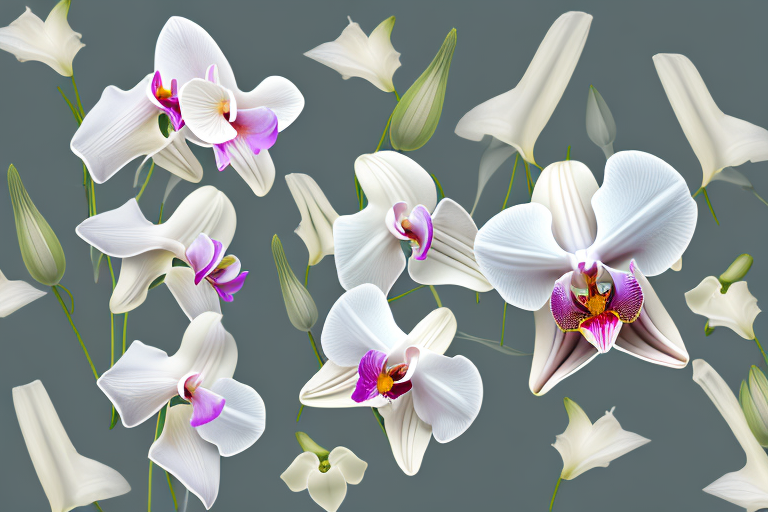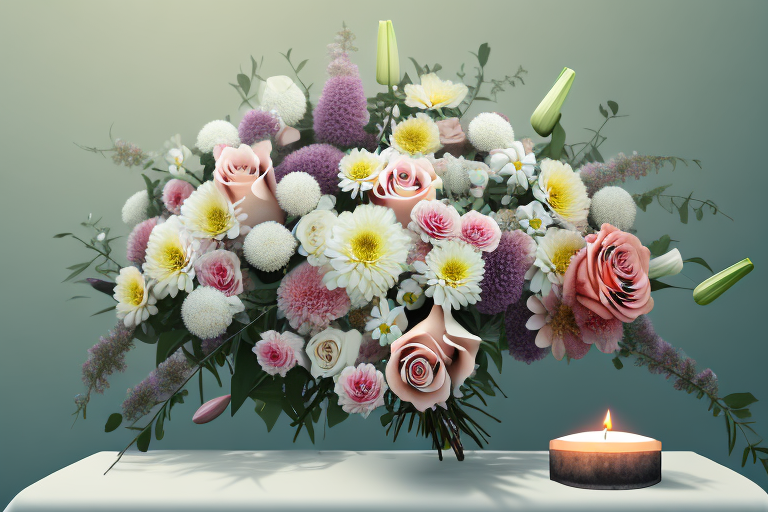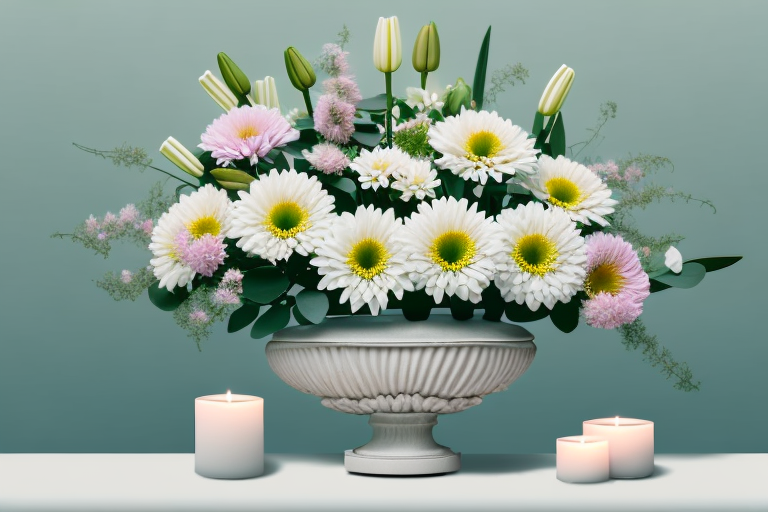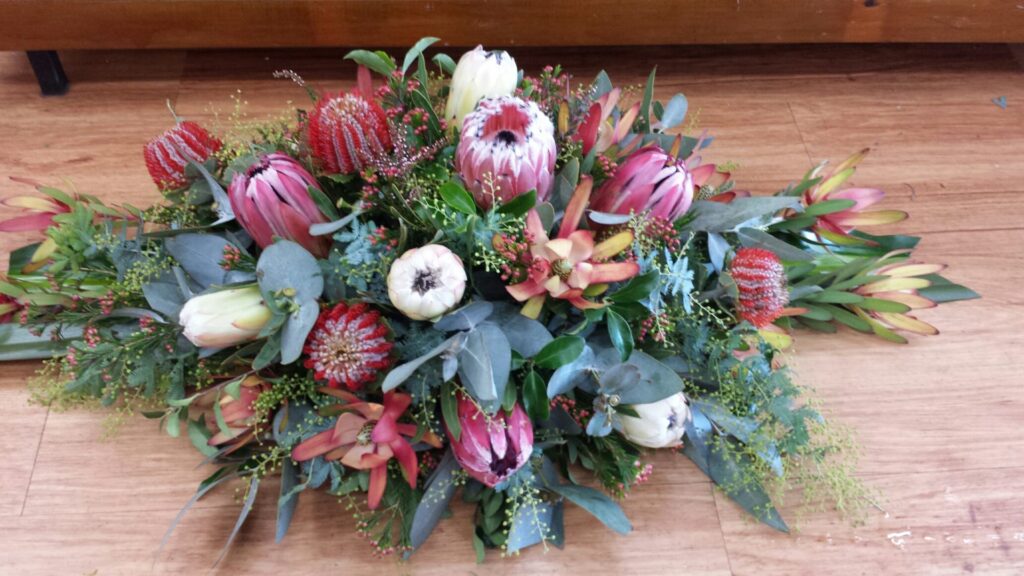Losing a loved one is undoubtedly one of life’s most difficult experiences. In times of grief, support is crucial to help the bereaved navigate through the mourning process. One way to convey condolence and offer comfort is through the gift of funeral flowers. These floral arrangements play a significant role in honoring the deceased and providing solace to those left behind.
Understanding the Role of Funeral Flowers
Funeral flowers have been a longstanding tradition in many cultures worldwide. They serve as a symbol of sympathy, respect, and love for the departed soul and their grieving family. The practice of adorning funeral services with flowers dates back centuries, embodying an understanding that nature and beauty can bring solace during times of sorrow.
The Tradition of Funeral Flowers
Throughout history, funeral flowers have held a significant place in funeral customs. Different cultures have varied traditions when it comes to the types of flowers and arrangements used. From elaborate wreaths to simple bouquets, these tributes serve as a visual reminder of the love and support gathered to honor the deceased.
Symbolic Meanings of Different Flowers
Each flower carries its own symbolic meaning, making the choice of blooms for funerals all the more meaningful. Lilies are a common choice, representing purity and the innocence of the departed soul. Roses symbolize love and can be a thoughtful tribute to a romantic partner or a close family member. Carnations, with their delicate petals, signify eternal love and remembrance.

While lilies, roses, and carnations are widely recognized for their symbolic meanings, there are numerous other flowers that hold special significance in the realm of funeral arrangements. Chrysanthemums, for example, are commonly used in Asian cultures as a symbol of grief and are often seen at funerals. Their vibrant colors bring a sense of vibrancy and life to the somber atmosphere, reminding mourners of the joyous moments shared with the departed.
Another flower that holds deep meaning in funeral customs is the gladiolus. With its tall stalk and multiple blooms, the gladiolus represents strength and moral integrity. It serves as a powerful tribute to the deceased, honoring their resilience and the impact they had on the lives of others.
Furthermore, the choice of flower colors can also convey different emotions and sentiments. White flowers, such as white roses or white lilies, are often associated with purity and innocence, while red flowers, like red roses, symbolize love and passion. Yellow flowers, such as yellow chrysanthemums, can represent friendship and warmth, offering comfort to grieving friends and family members.
When selecting funeral flowers, it is important to consider the cultural and personal preferences of the deceased and their family. Some cultures may have specific flower traditions or color symbolism that should be respected. By choosing flowers that hold personal meaning and significance, mourners can create a beautiful and heartfelt tribute that honors the life and memory of their loved one.
How Funeral Flowers Convey Support
Funeral flowers are a tangible expression of sympathy, providing comfort and support during a time of immense grief. They serve as a way to convey condolences to the bereaved, offering a silent embrace in the absence of words.
Expressing Sympathy Through Blooms
Funeral flowers speak volumes even when no words can do justice to the grief experienced. They carry a message of compassion and empathy, letting the bereaved know that they are not alone in their pain. The simple presence of flowers can bring solace and remind mourners of the support surrounding them.
The Comforting Presence of Flowers
Flowers have a soothing effect on the human psyche. Their vibrant colors and pleasant fragrance can help create an atmosphere of calmness and serenity, providing a gentle respite amidst the overwhelming emotions of loss. Funeral flowers act as a visual expression of care and provide a sense of reassurance in a difficult time.
Moreover, the choice of flowers can also convey specific meanings and sentiments. For example, lilies are often associated with purity and innocence, symbolizing the departed’s soul returning to a state of peace. Roses, on the other hand, are a classic symbol of love and can represent the deep affection and admiration held for the deceased.
Additionally, the arrangement and presentation of funeral flowers can further enhance their impact. A carefully crafted wreath or a cascading spray can create a striking visual tribute, capturing the attention of mourners and serving as a reminder of the life that was lived. The meticulous selection of colors and types of flowers can also reflect the personality and preferences of the departed, adding a personal touch to the memorial.

Sharing in the Mourning Process
Grief is a deeply personal journey, but it is not one that has to be endured alone. Funeral flowers play a significant role in bringing people together as they share in the collective mourning process.
Flowers as a Shared Language of Grief
When attending a funeral or memorial service, mourners often bring flowers as a way to show their support and solidarity. The presence of these floral tributes creates a shared language of grief, connecting everyone present in a common understanding of loss.
The Healing Power of Collective Mourning
Coming together to mourn is an essential part of the healing process. Funeral flowers help facilitate this collective mourning by creating a physical symbol of unity. As mourners lay their flowers alongside others, they contribute to a visual representation of love and support, providing comfort to both the bereaved and themselves.
Moreover, funeral flowers not only serve as a visual reminder of the collective mourning, but they also have a profound impact on our senses. The delicate fragrance of lilies, roses, or carnations fills the air, creating an atmosphere of solace and tranquility. The gentle rustling of petals as people pay their respects adds a soothing soundtrack to the somber occasion, offering a sense of serenity amidst the sorrow.
Additionally, the act of selecting and arranging funeral flowers can be a therapeutic process in itself. It allows mourners to channel their emotions into something tangible and meaningful. Choosing the perfect blooms, considering their colors and symbolism, becomes a way to honor the life of the departed and express one’s own feelings of loss.
Choosing the Right Funeral Flowers
When selecting funeral flowers, several factors should be considered, ensuring that the chosen arrangement is both meaningful and appropriate for the occasion.
Funeral flowers have long been a way to express condolences and pay tribute to the departed. They serve as a visual representation of love, respect, and remembrance. The right choice of funeral flowers can provide comfort to grieving family members and friends, while also honoring the life and personality of the deceased.
Factors to Consider When Choosing Funeral Flowers
When choosing funeral flowers, it is crucial to consider the cultural and religious customs of the deceased and their family. Different beliefs and traditions may dictate specific flower preferences or color symbolism. For example, in some Asian cultures, white flowers are associated with mourning, while in others, they symbolize purity and peace.
Additionally, the personality and preferences of the departed should also be taken into account, allowing the floral arrangement to reflect their unique spirit. If the person was known for their vibrant and colorful personality, a bouquet of bright and cheerful flowers may be more appropriate. On the other hand, if they had a more subdued and elegant demeanor, a simple arrangement of white lilies or roses may be a better choice.

Popular Choices and Their Meanings
While personalization is key, certain flower choices have become popular in funerals due to their universal symbolism. White roses, representing purity and innocence, are a common choice for sympathy bouquets. Their delicate petals and sweet fragrance can bring a sense of peace and serenity to the mourners.
Chrysanthemums convey respect and honor, making them a prevalent option in many cultures. These flowers come in various colors, each carrying its own meaning. Red chrysanthemums symbolize love and deep affection, while white chrysanthemums represent loyalty and honesty.
Orchids, with their elegance and beauty, can symbolize everlasting love and are often selected to honor a cherished life. These exotic flowers come in a wide range of colors, allowing for a more personalized tribute. Purple orchids, for instance, are often associated with royalty and admiration, while pink orchids represent grace and femininity.
By carefully considering the cultural customs, personal preferences, and symbolic meanings of different flowers, you can choose funeral arrangements that truly honor the life and memory of your loved one. Whether it’s a simple bouquet or an elaborate floral display, the right choice of funeral flowers can provide solace and comfort during a difficult time.
The Future of Funeral Flowers
As with many aspects of our lives, funeral flowers have evolved to embrace modern trends and sustainability. Let’s delve deeper into the exciting developments that are shaping the future of funeral flowers.
Modern Trends in Funeral Flowers
Today, funeral flowers can be customized and personalized to reflect the individuality of the departed. The days of generic arrangements are long gone, replaced by a vast array of options that capture the essence of a loved one’s life. Imagine a floral display that showcases their hobbies, passions, and achievements, creating a truly unique tribute. From a bouquet of golf-themed flowers for the avid golfer to a delicate arrangement of paintbrush-shaped blossoms for the passionate artist, the possibilities are endless.
Moreover, modern technology has opened up new avenues for digital remembrance. Virtual memorial walls, adorned with virtual flowers, provide a platform for friends and family to share their memories and pay their respects from anywhere in the world. This digital space allows for a lasting tribute that can be revisited and cherished by loved ones for years to come.
Sustainability and Eco-Friendly Options
As environmental concerns grow, so does the demand for eco-friendly funeral flower alternatives. Recognizing the need to minimize the ecological impact, the funeral industry has embraced sustainable practices. Biodegradable arrangements, made from natural and organic materials, offer a beautiful and environmentally conscious way to honor the deceased.
Imagine a stunning arrangement crafted from sustainably sourced flowers, adorned with biodegradable ribbons and nestled in a compostable container. This shift towards sustainability not only reflects our collective commitment to preserving the Earth for future generations but also serves as a meaningful tribute to a loved one’s values and beliefs.
By choosing eco-friendly funeral flowers, we can celebrate a life well-lived while leaving a positive impact on the planet. It is a small but significant step towards a more sustainable future.
In conclusion, funeral flowers play a profound role in conveying support and sharing in the mourning process. By understanding their significance, we can offer condolences and comfort to those facing the loss of a loved one. As traditions evolve, funeral flowers continue to adapt and transform, serving as a timeless symbol of love, remembrance, and unity. The future of funeral flowers is bright, with endless possibilities to honor and celebrate the lives of those we hold dear.
More to read: Honouring a Life Well-Lived with Elegant Funeral Arrangements

